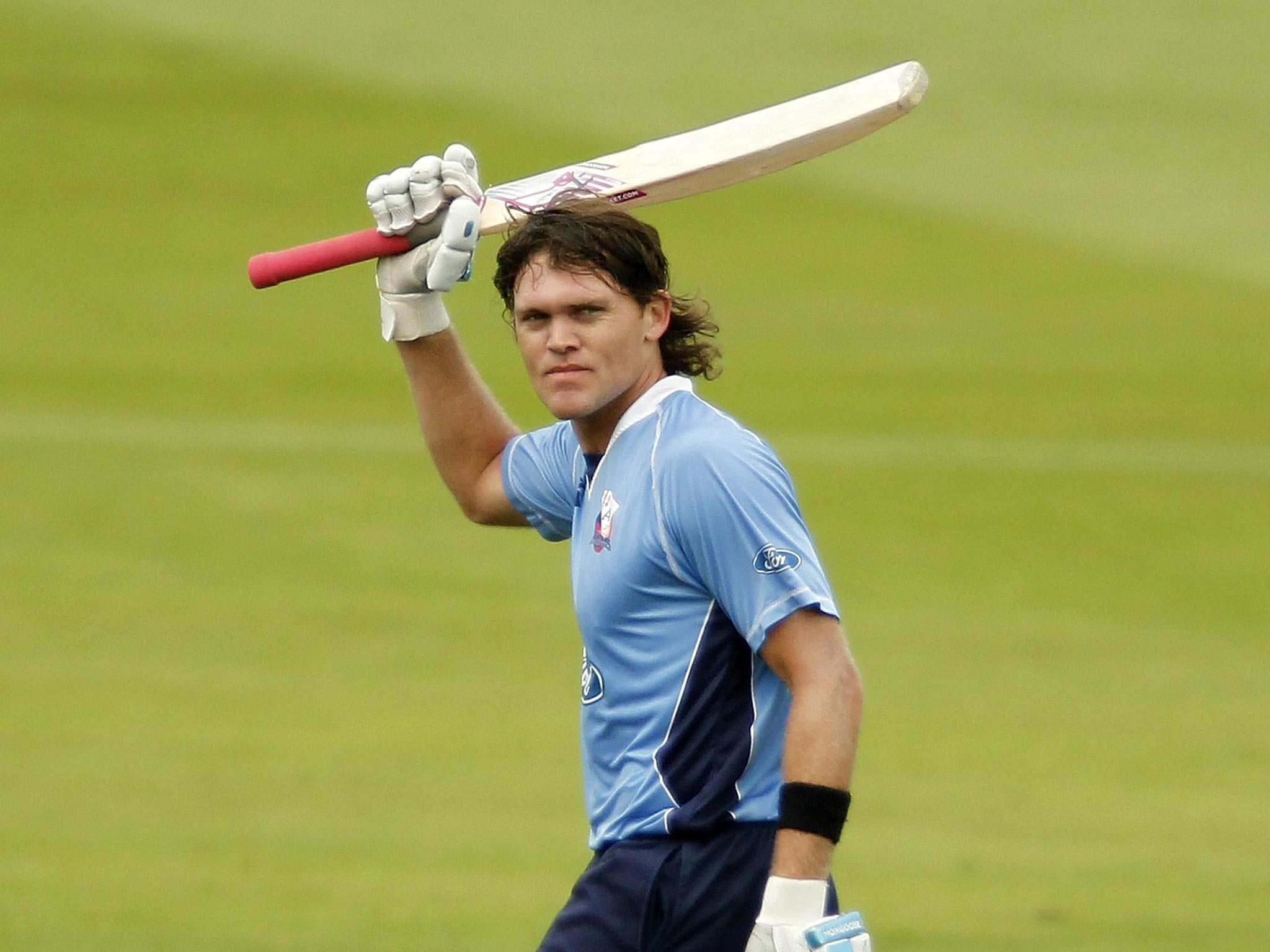Stephen Brenkley: Lou Vincent's dirty secrets could clean up the game

The day that a player throws the Ashes, the game really will be up. Nobody is suggesting that this has happened or will happen but then nobody really knows the extent of match-rigging in cricket.
All that seems to be clear is that a murky trade, which seemed to have unravelled a decade ago, is back and never truly went away. It has been offered fresh life by the advent of Twenty20 leagues across the world, the televising of which has helped to fuel illegal bookmaking and therefore the manipulation of matches.
Lou Vincent, about whom, along with two or three others rumours, circulated for years, is reported to have provided anti-corruption investigators with a weighty dossier. This is said to contain details of matches in which he and perhaps others were up to no good.
The International Cricket Council, which never comments on investigations, will be annoyed that it has leaked out. But this is a big moment for a governing body that has invariably struggled to govern.
Last week the ICC announced a review of its anti-corruption strategy. At the same time they denied that this was because the present system was failing. It was possible to be confused by this.
On the one hand, the ICC's chief executive, David Richardson, said: "Corruption is undoubtedly the biggest threat to the sport, undermining the very values that attract players, spectators and commercial partners, and the corruptors do not respect geographical boundaries." On the other the ICC have not, in public at least, arraigned a single person involved in corruption.
But this is not the ICC's main difficulty. In approaching an issue which is besmirching the sport, and inevitably talking a good game, the organisation and its officers ought to adopt the Caesar's wife principle, to be above suspicion. Yet it is still probable that this summer the new ICC chairman will be N Srinivasan, until recently the president of the Board of Control of Cricket in India.
In his own country, Srinivasan is under profound scrutiny and Chennai Super Kings, the Indian Premier League team owned by his company India Cements, is under investigation for possible misdemeanours. It is important to state that Srinivasan has been found guilty of nothing and for all anyone yet knows may very well be guilty of nothing.
Indeed, Giles Clarke, the chairman of the ECB, who with Srinivasan helped to remodel the ICC last winter so that it will effectively be run permanently by India, England and Australia, admires the Indian's integrity and straight-talking.
This is not the point. Srinivasan is a controversial figure at home, whose cricketing businesses are being inspected. Putting aside what seems to be an obvious conflict of interest between owning a team and also being president of the board overseeing the competition in which they play, as Srinivasan was, is this not the time for the ICC to be absolutely pure in thought and deed?
If Srinivasan cannot see the sense in his stepping aside for the time being he should be asked to do so. He may feel that to resign now would be an implicit admission to something. More importantly, however, it will be difficult to trust entirely the body of which he is the head while he is under suspicion.
Should the Vincent file possess half the information suggested, it could help the ICC and cricket boards around the world to begin to understand the extent of match-rigging and how it is run. With any luck, it will be discovered how systematic and organised it is. So far, in all anti-corruption investigations only one-off matches have been designated when the oft-voiced feeling is that there are a series of ringleaders based in Asian ghettoes who mastermind the manipulation of televised matches.
The ICC obviously knows more than it lets on but it can be deduced from Richardson's comments last week that Twenty20 domestic leagues are the haven for the modern fixer. International cricket, for all that there remain too many matches without context – the one-off T20 between England and Sri Lanka at The Oval next week for instance – seems as though it may be all but squeaky clean now.
Today, a body calling itself the International Centre for Sports Security published a report after two years of research which claimed that illegal betting was responsible for laundering $140 billion (£84bn) of dirty money. It said it was impossible to calculate the number of illegal betting operators, but that 53 per cent of illegal gambling was driven from Asia.
Cricket and football were said to be the most vulnerable sports. The likelihood is that the preponderance of televised lower-status T20 matches in which the participants are on lousy wages will only enhance the need for vigilance. It is not the Ashes that appear to be at stake here, it is the whole game.
Join our commenting forum
Join thought-provoking conversations, follow other Independent readers and see their replies
Comments
Bookmark popover
Removed from bookmarks